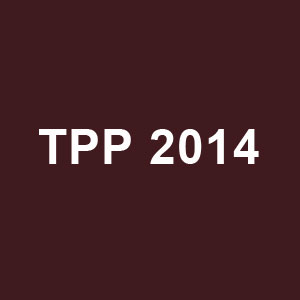Mimesis Restored: Can Performance Studies Offer a New Epistemological Perspective for the Humanities?
Interactions among the arts are dramatically increasing today, challenging academic views which formerly strictly separated one realm from the other. Beyond the idea of the work of art as an object, made and finished by an individual author, we are now experiencing art as a praxis. In the postmodern age, art is increasingly becoming (or, better, is coming back to be) a collective and public practice, more than an individual and private act of reading/viewing/listening. From such a point of view, the notions of performance, performativity and performing arts (as a whole, including theatre, music, dance, and mediatized performances too) have emerged, as Marvin Carlson pointed out, not only as a particular new orientation within the world of theatrical presentation, but «as a central metaphor and a critical tool for a bewildering variety of studies, covering almost every aspect of human activity» (M. Carlson, Performance. A Critical Introduction, 20042, p. ix).
I disagree with Carlson only about the choice of the word “metaphor”. Following Performance Studies scholar Diana Taylor, I do believe that «by taking performance seriously as a system of learning, storing, and transmitting knowledge, performance studies allows us to expand what we understand by “knowledge”» (D. Taylor, The Archive and the Repertoire, 2003, p. 16). Since performances are made of actions (as practices involving the execution of something which has been previously prepared and rehearsed) they function as “acts of transfer” (Taylor) by means of what Schechner has called “restored behaviour” or “twice-behaved behaviour”: that is, by means of “embodied knowledge” and embodied culture. Without ignoring the pressure to rethink what “knowledge” is from the point of view of the epistemic changes brought on by digital technologies, it is my opinion that we are now going to revalorize mímesis – in a pre-Platonic sense – as a fundamental way of knowing.
Fabrizio Deriu is Senior Lecturer in Theatre History and Performance Studies at the University of Teramo (Italy), Faculty of Media Studies. He is a member of the board of the Ph.D. Program in “Digital Technologies and Methodologies in Performance Studies”, Sapienza University of Rome. He has previously taught at the University of Calabria, at the Sapienza University of Rome, at the University of Roma Tre, and at the Scuola Nazionale di Cinema in Rome. His main fields of interest are Performance Studies and the History of Actors and Acting in 20th century theatre, film and audiovisual media. Among his publications: Il paradigma teatrale. Teoria della performance e scienze sociali (1988), Gian Maria Volonté. Il lavoro d’attore (1997), Lo schermo e la scena (1999), Opere e flussi. Osservazioni sullo spettacolo come oggetto di studio (2004); Metropoli e nuovi consumi culturali (edited with A. Ruggiero, L. Esposito, 2009); Performático. Teoria delle arti dinamiche (2012); Mediologia della performance. Arti performátiche nell’epoca della riproducibilità digitale (2013). He has also translated and edited an anthology of texts by Richard Schechner (Magnitudini della performance, 1999). He is a member of the Performance Philosophy International Research Network since December 2012.

